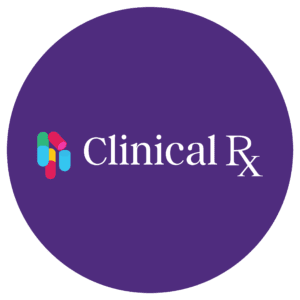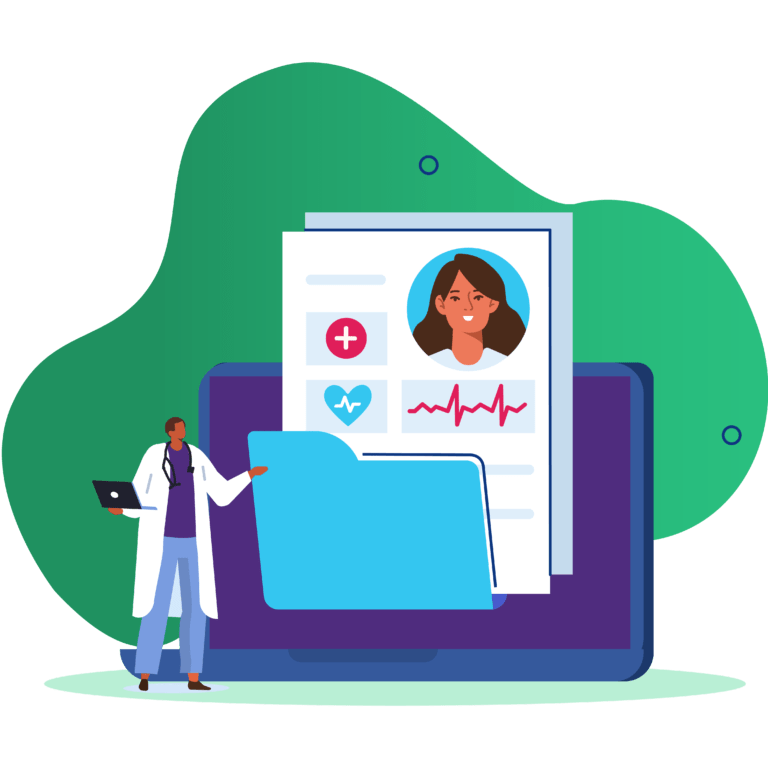
Discharge Letter Service - Medication Reconciliation
Government's Recovery Plan to Tackle Secondary Care Workload Dump
The issue of secondary care “workload dump” has been impacting general practices for many years. The government’s latest recovery plan for general practice aims to tackle this once and for all. The plan sets out four measures aimed at reducing the time practice teams spend on administrative work and work generated by problems at the primary-secondary care interface.
One of the key areas of administrative work that GPs urgently need addressing is discharge letters from hospitals and discharge planning. Currently, it can take weeks or even months for GPs to receive these letters, and approximately 10-20% of a usual working day processing these letters which can delay patient care and lead to potential hospital readmission. The recovery plan also calls for better communication between primary and secondary care providers. This would help to ensure that patients are not passed back and forth between different services, which can also add to GPs’ workload.
The government’s recovery plan is a welcome step towards tackling the issue of secondary care workload dump. However, it is important to remember that this is a complex issue, and there is no easy solution. The plan will need to be implemented effectively in order to make a real difference to GPs’ workload.
By partnering with Clinical Rx®, we can help to reduce the burden on GPs and practice teams by providing a complete discharge letter service. We ensure efficient and safe processing of hospital discharge letters, medication reconciliation, reviews to provide high-quality care to your patients.

CQC Report Finds Risk of Medication Errors at Discharge
When patients are discharged from the hospital, their GPs need to carefully review the discharge summary to ensure that the patient’s medications are accurate and up-to-date. This process, known as medication reconciliation, is essential to prevent patients from being prescribed duplicate or incompatible medications, which can lead to serious complications and could be detrimental to patient health and wellbeing.
Medication reconciliation is an essential part of ensuring patient safety at discharge. The Care Quality Commission (CQC) recently visited 12 primary care trusts (PCTs) and surveyed 280 of their GP practices. They highlighted the importance of medication reconciliation in the report that found that nearly one in five GP practices did not have a clear process for reconciling medications at discharge. This means that there is a significant risk that patients could be harmed by medication errors.
The CQC report found that of those GP practices surveyed, 17% reported that patient notes were updated by managerial or clerical staff post discharge, rather than someone with a clinical background, such as a GP or Pharmacist. This means that there was a risk that patients’ notes were not updated accurately or completely, which could lead to medication errors. They also found that there was no system in place to monitor whether discharge summaries were reviewed and patient notes updated effectively and efficiently. This means that there was no way to ensure that patients were receiving the correct medication after leaving hospital.
These findings have naturally led to concerns about the safety of patients who are prescribed medicines after leaving hospital and the CQC stated that the NHS must do more to prevent harm to patients from prescribed medicines after leaving hospital.
At Clinical Rx® our team take care of the whole process from coding, medication changes and post discharge reviews. We ensure patients and their community pharmacies are in the know regarding any follow ups and medication changes to promote safer prescribing following hospital admissions.
Medication Errors: A Leading Cause of Hospital Admissions
Incidents involving medication, such as prescribing errors and failures to review medication after discharge, were listed in the top 5 commonly reported errors to the National Patient Safety Agency. One study estimates around 4% of all hospital admissions are due to preventable medicine-related issues. But 81% of GP practices surveyed said when hospitals sent them summaries of the care, details of medicines prescribed were incomplete or inaccurate ‘all of the time’ or ‘most of the time’. This is a particular concern because if a GP prescribes incompatible drugs, it could harm the patient. This risk is even greater if the work of medication reconciliation is done by non-clinical staff, who may not be as aware of the potential risks.
Elderly and chronically ill patients are often prescribed multiple medications with complex dosing regimens. This makes them more vulnerable to medication errors, which can have serious consequences. More than 40% of medication errors occur during handoffs between healthcare providers, such as when a patient is admitted to the hospital, transferred to another unit, or discharged. This is because there is often a lack of communication about the patient’s medications.

In light of these findings, NHS England has released a statement regarding the Discharge Medicines Service (DMS). The DMS is an essential service that is designed to ensure better communication of changes to a patient’s medication when they leave hospital. This helps to reduce the risk of avoidable harm caused by medicines, and it can also help to reduce readmissions and emergency admissions.
The DMS is conducted by the patient’s primary care team, which includes their general practice and community pharmacy. The team will work together to reconcile the patient’s medications, and they will provide education and support to help the patient understand their medications and how to take them safely.
Medication Reconciliation: A Necessity for Greater Efficacy of Care Delivery
Medication reconciliation is the process of comparing a patient’s current medications to the medications they were taking before admission to the hospital, identifying the most accurate list of currently prescribed medicines, including the drug’s name, dosage, frequency, and route. It can be a very time-consuming process to review a patients prescribed and non-prescribed medication (herbal, over the counter) to check them for changes post discharge, duplications, dosing errors, omissions, and possible drug-drug interactions. These checks should ideally be carried out by a qualified healthcare professional who has the critical thinking skills and training to spot potential medicinal interactions and risk.
In some cases, patients may be prescribed different medications after they are discharged from the hospital. For example, a patient who was taking Glucophage before admission may be prescribed Yaltiform after discharge. If the patient is not aware that these two medications are the same, they may continue taking both of them. This could lead to a hypoglycaemic episode and serious health complications for the patient. That is why it is important for healthcare providers to reconcile medications at discharge. This process should involve the patient’s primary care provider, the hospital, and the patient’s community pharmacy.

The first step in medication reconciliation is for the patient’s primary care provider to review the discharge summary from the hospital. The provider should then compare the medications listed in the discharge summary to the medications that the patient was taking before admission. If there are any changes, the provider should update the patient’s prescription and contact the patient to discuss the changes. The patient’s community pharmacy should also be involved in medication reconciliation. The pharmacy should receive a copy of the discharge summary from the hospital, and they should contact the patient to discuss any changes to the patient’s medication regimen.
At Clinical Rx ® we are aware of all these concerns raised; the risks involved in delayed transfer of care from secondary back to primary care. We have taken on board the subsequent changes advised by CQC and NHS England, to help minimise the risk of patient harm post discharge, which ultimately builds the foundation of this service we provide.
The Clinical Rx® Complete Solution for Medication Reconciliations
At Clinical Rx®, we also want to take it one step further by taking the burden of medicine reconciliation away from practice teams, specifically GPs, and delegate this workload to our trained Clinical Pharmacists. Our experienced team can work to identify potential medication discrepancies, medication changes, amendments and ensure that patients are taking the correct medications and check their awareness and compliance and support with their transition as an outpatient.
We also work with your in house pharmacy team and community pharmacies to ensure that they too are aware of any changes to their patient’s medication regimen. This is vitally important for any monitored dosage system patients and changes would need to be implemented as a matter of urgency to ensure patients continue to receive their medications correctly. This also further reinforces NHS England’s essential service of discharge medicines brought into primary care.
And so, to further resolve the initial issue that has been plaguing General Practice time, opting for clinical pharmacists to be delegated this responsibility, in turn frees an additional 4-6hours clinic time per day. This then allows General Practice Doctors the time to shift their focus on more complex patients, further solidifying the doctor-patient relationship with minimal risk of errors and maximising the potential for continual patient care and patient safety.
Clinical recruitment, without the headaches
Senior Supervision
Our GPhC accredited Clinical Pharmacists & Technicians have on demand support from senior Clinical Pharmacists and clinicians.
Independent and Non - Independent Prescribers
Our pharmacist development is fully compliant with ARRS training requirements including the CPPE Pathway and Independent Prescribing qualification.
Rapid Onboarding
Contact our Virtual Clinical Team. We are here to help you design a package that supports the needs of your organisation.
